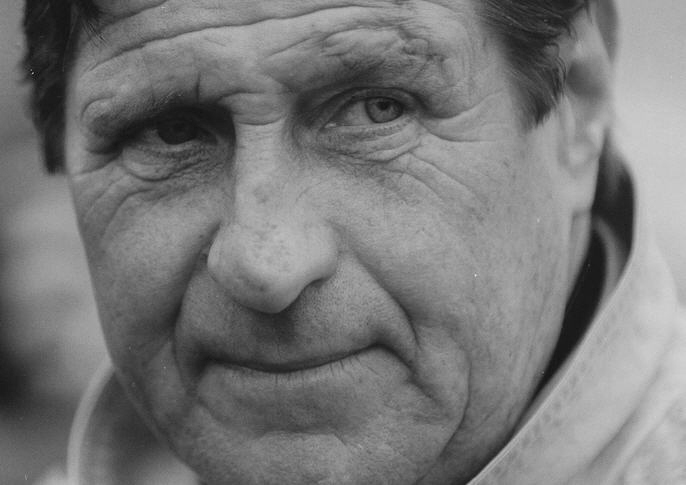With the news on Friday that Peter Post had died in Amsterdam at the age of 77 the sport lost one of it’s Colossi.
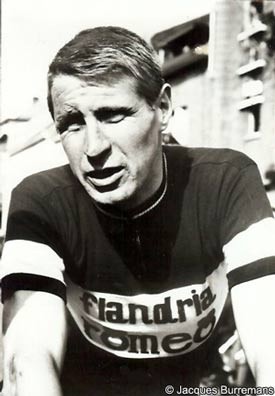
Born in Amsterdam in November 1933, the son of a butcher, he had a hard childhood growing up in Nazi occupied Holland.
He turned professional in 1956 for Legendary Amsterdam bicycle makers RIH Sport; he would remain in the peloton until 1972 having ridden for some of the most famous teams in the history of cycle sport — Flandria, Faema, Solo-Superia and Willem 11.
There are three distinct aspects to Peter Post’s career, all of which are characterised by amazing versatility.
As a road rider Post could win national Tours — Holland 1960, Germany 1962 and Belgium 1963.
He was also a quality classics rider, his most famous win being Paris-Roubaix in 1964 and there were podium places in Paris-Brussels, GP E3, Fleche-Wallonne, Rund um Koln and Dwars door Vlaanderen, not to mention winning the Dutch pro road title.
But he could also partner Jo De Roo to third place in the classic Barrachi two-up time trial behind Merckx/Bracke and beat Jacques Anquetil to win the Criterium des As — ‘The Criterium of the Aces’ an invitation only, Derny paced race which Anquetil won four times.
On the track Post is best remembered as a Six Day rider; his 65 wins place him fourth in the all time rankings behind Patrick Sercu with 88, Rene Pijnen with 74 and Danny Clark on 72.
But the true quality of his record is reflected in the number of six day races he started; Clark signed on in 235, Pijnen 233 and Sercu 223 – whilst Post is only 15th in the all time start rankings on 155, but won 42% of the Six Day races he started.
He won most major European six day races at least once — Amsterdam, Antwerp, Berlin, Bremen, Brussels, Cologne, Dortmund, Frankfurt, Gent, Grenoble, London, Milan, Munster, Rotterdam and Zurich.
He never won in Copenhagen; and missed out on Munich and Stuttgart because these two events were not promoted during his peak years.
Peter Post also figures in the record books for most wins in one race, Antwerp with 11; and most wins in a single season — eight.
But what is overlooked about Post’s track career is that he was one of the world’s best pursuit riders, he was a multiple Dutch champion and took bronze and silver in the world pro pursuit championships; he was unlucky to be competing in a golden era of pursuiting against such greats as Bracke, Faggin and Porter.
Behind the Derny he was peerless, with a string of European titles to his name and the Derny world hour record to his credit.
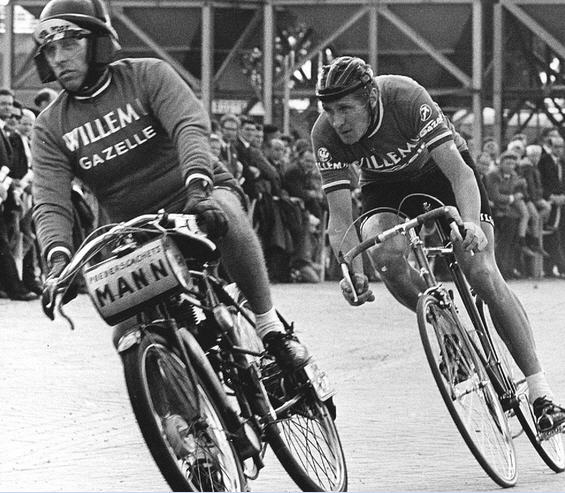
In his era there was no world Madison championships but there was a European championship which was hotly contested by the top six day men of the time; the European champion’s jersey with the vertical rainbow stripes meant increased start money for the holders — he last won this title with Patrick Sercu in 1968.
As befits a man of such diverse skills he also won the European omnium championships; in 1964 he was European title holder for Derny, omnium and Madison with Pfenninger — with whom he paired to win 19 six days.
This places the pairing equal third on the all time list of winning teams behind Risi and Betschart on 37.
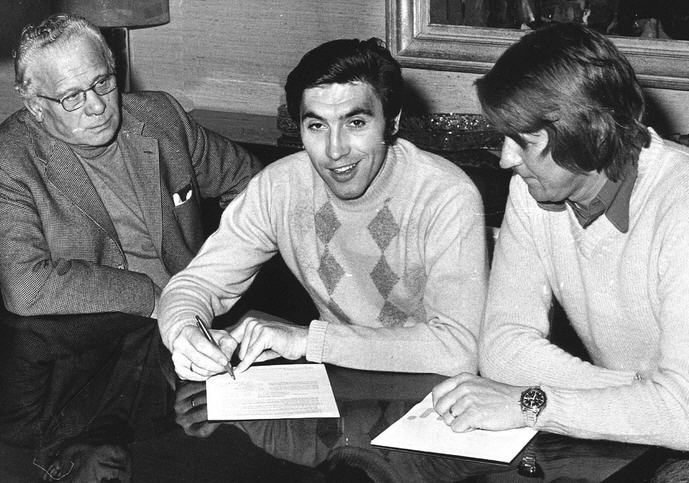
Post also figures in 10th spot with Sercu on 14 wins and 14th place with Van Looy on 10 wins.
Sercu describes him as; ‘a great man, a great team mate; I always looked up to him.’
And at 36 Post was still winning Dutch track championships, taking the scratch title in 1971.
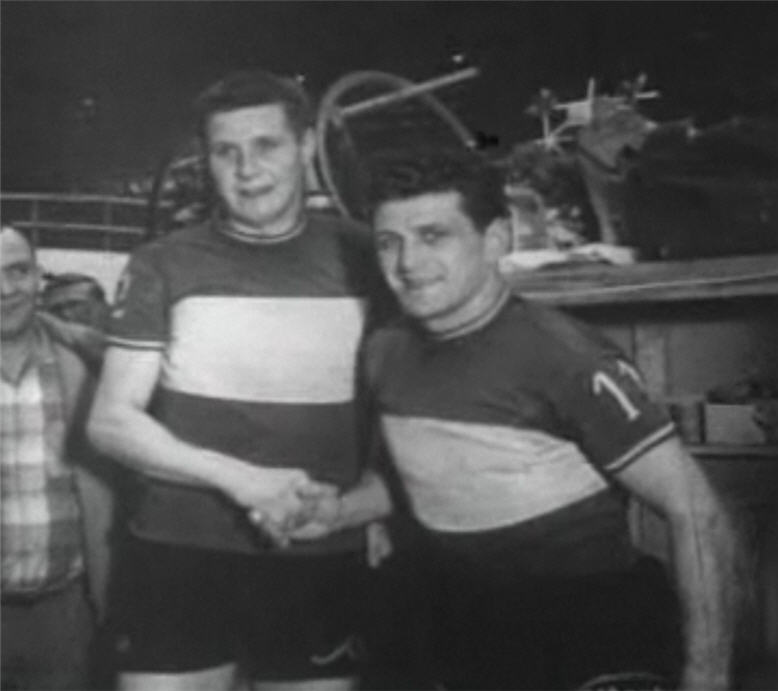
When his riding days came to an end in 1972 there were no financial worries – he was a shrewd investor and owned a successful bowling alley — and a new challenge awaited him.
British bicycle manufacturer Raleigh launched a pro team in 1973; the team made forays into Europe but results were mixed.
Post was recruited to manage the team for 1974 and so began the story of perhaps the most successful team in history.
He culled many of the team’s British riders and some of those who survived were less than impressed with Post’s tough style – branding him anti-British.
Scotsman Billy Bilsland was a survivor and more succinct; ‘Post wasn’t anti-British, he was anti-failure!’
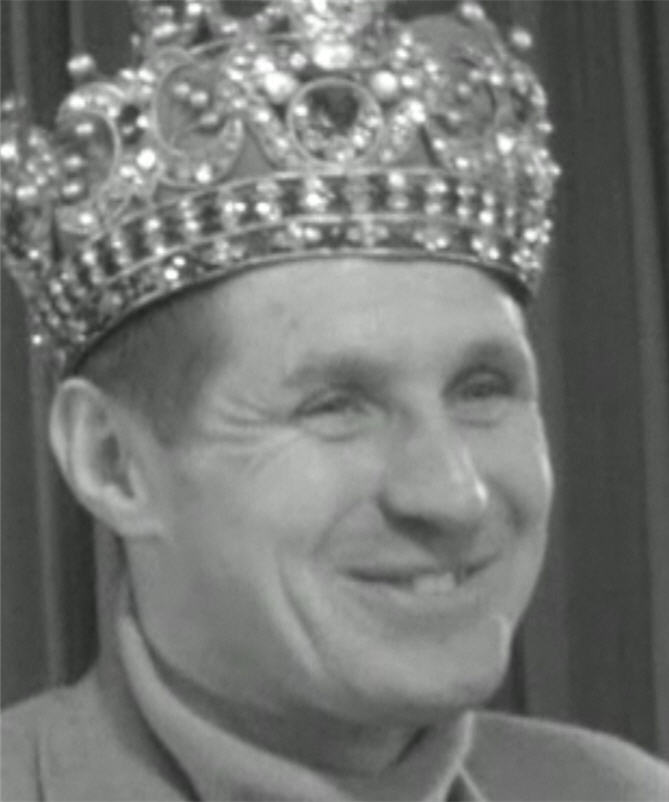
A sentiment endorsed by Hennie Kuiper, who found himself in the break at the 1977 Amstel Gold Race with team mate Gerrie Knetemann and Raleigh team mate turned bitter rival, Jan Raas.
The two Raleigh men couldn’t give Raas the slip and it was the Frisol Oil jersey first across the line; ‘Post was livid, he couldn’t handle losing’ said Kuiper.
Whilst modern day teams include their ladies’ squads palmares in the number of wins, there was no need for Post to inflate his team’s successes, including Six Day wins, his results read like this;
- 1974: 55 wins
- 1975: 55 wins
- 1976: 71 wins
- 1977: 68 wins
- 1978: 94 wins
- 1979: 99 wins
- 1980: 120 wins
- 1981: 94 wins
- 1982: 92 wins
- 1983: 100 wins.
And whilst these totals do include Six Day races they do not include team time trials, a discipline which Raleigh with their philosophy of ‘Total Cycling’ dominated throughout their history.
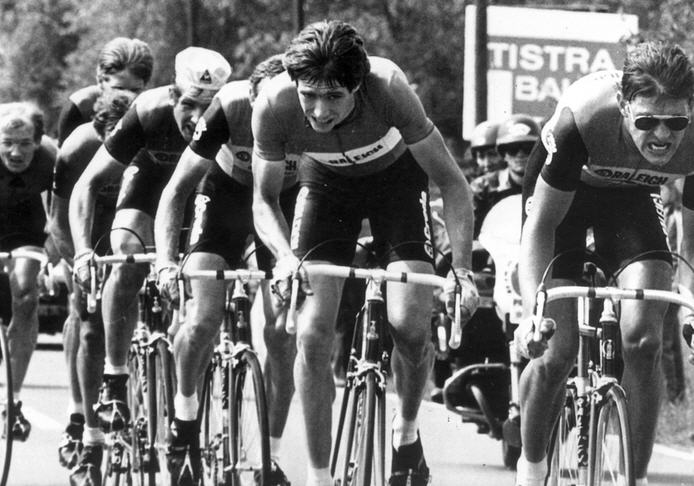
During this period the team won virtually every important one day race on the calendar – including the world professional road title – with riders like Jan Raas, Gerrie Knetemann, Roy Schuiten and Dietrich Thurau – and the 1980 Tour de France, with Joop Zoetemelk.
That year also saw the team win 11 stages in the race.
Raleigh’s cars, kit and bicycles were always the coolest.
Post was one of the first to embrace skinsuits, thermal training clothing and low profile bikes – Erik Breukink says; ‘he was a perfectionist, firm but fair.’
When Raleigh decided that the team had served the purpose and brand awareness was sky high in Europe, Post obtained sponsorship for his team from the Japanese electronics company Panasonic.
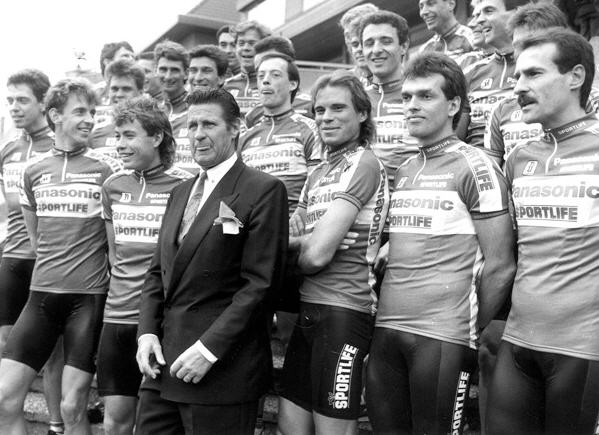
Men like Phil Anderson, Eddy Planckaert, Robert Millar and Eric Vanderaerden were the stars of their day and whilst perhaps not as dominant as Raleigh the team was highly respected and highly successful.
Post’s men continued to be a major force in European cycling into the early 90’s and when Panasonic’s tenure ended Post obtained fresh sponsorship from Novemail-Histor.
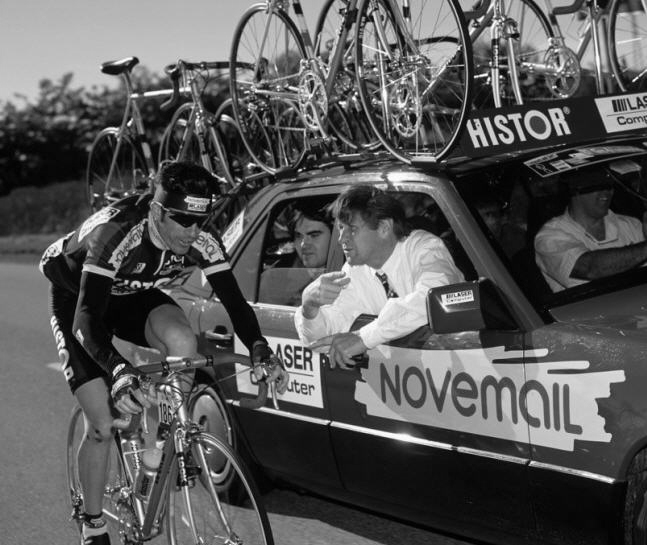
Post retired in 1995 having changed forever the way cycling teams are presented and managed.
Results-wise he is the second most successful cycling manager in the history of the sport; only Guillaume Driessens — due to his tenure as Eddy Merckx’s boss – has a better record.
One of his contemporaries said; ‘Peter Post was hard on riders — but was hardest on himself.’
Hard or not, there were riders who spent their whole careers with him; but also riders who never again performed at the level they achieved with Post after they left Raleigh having had ‘better’ offers from other teams.
The last word goes to Eric Vanderaerden who won the Tour of Flanders in 1985 and Paris-Roubaix in 1987 as a Panasonic man;
“Post was a great motivator, we might have had our doubts about the weather, the strength of the opposition…
“But during the course of a pre-race meal he had such an effect on us that we rose from the table thinking ‘we are unbeatable!”’
